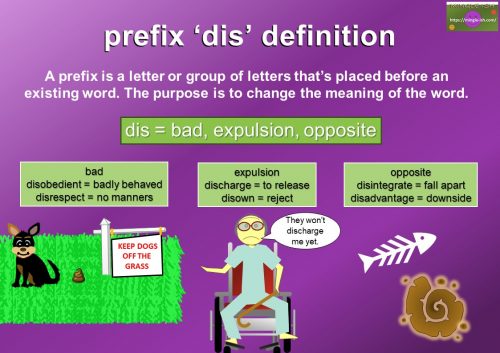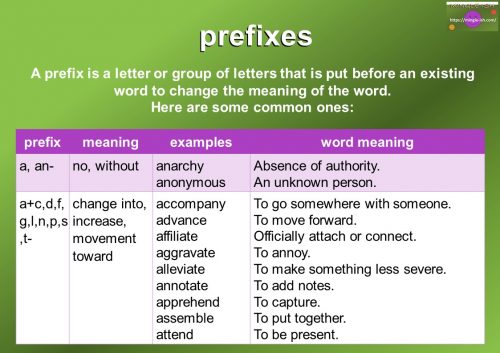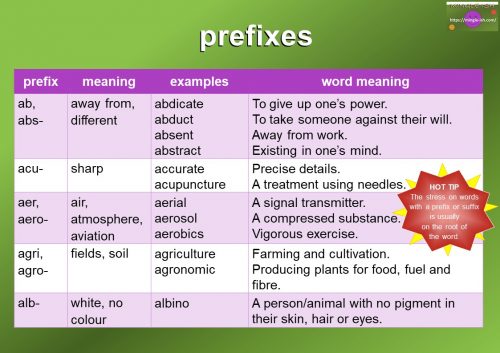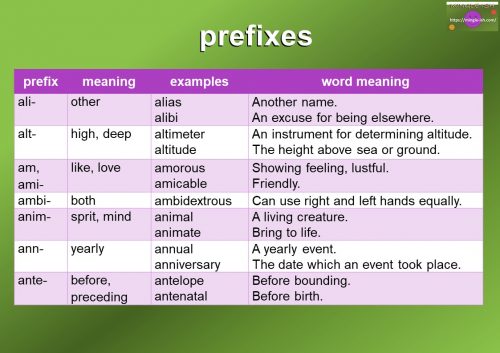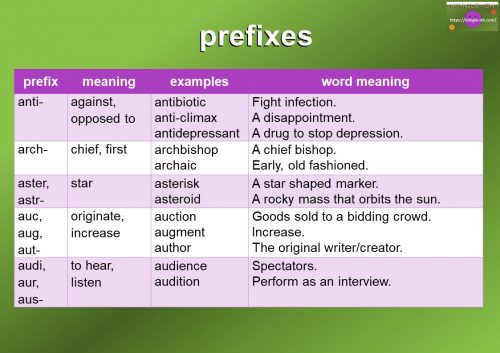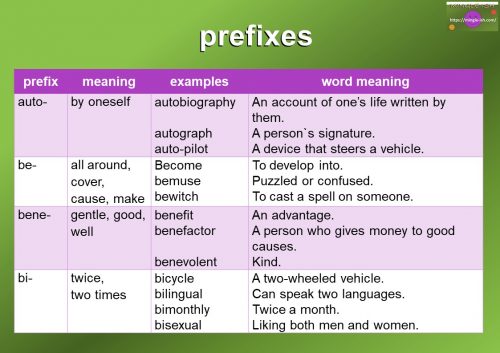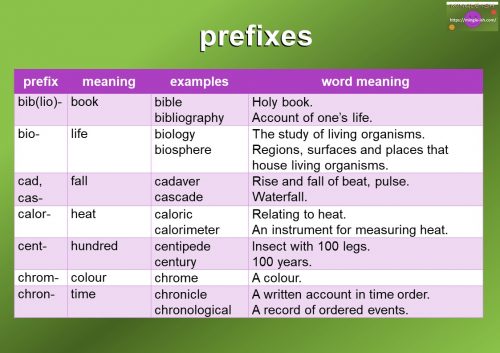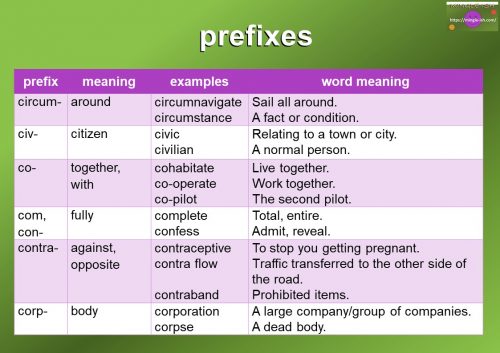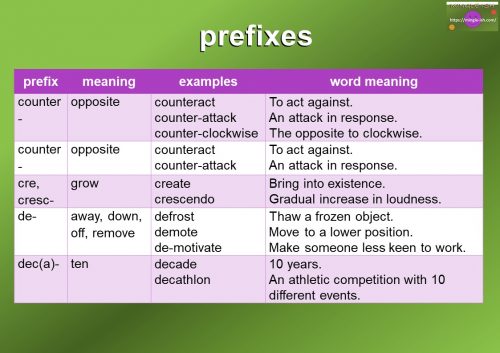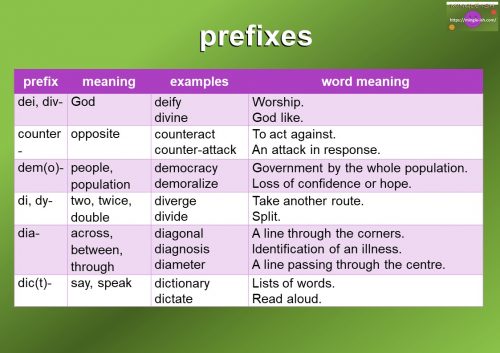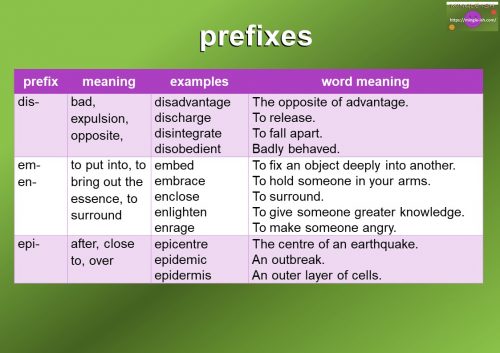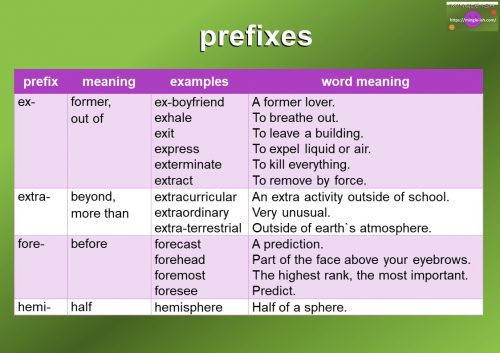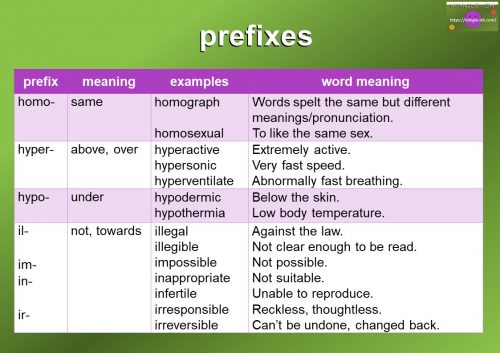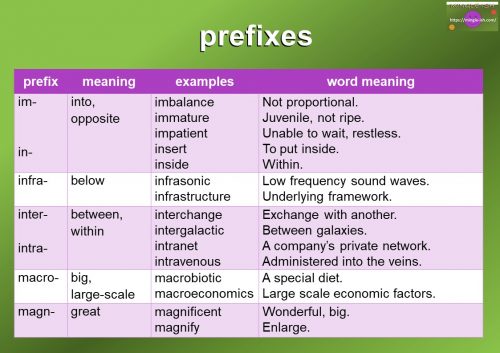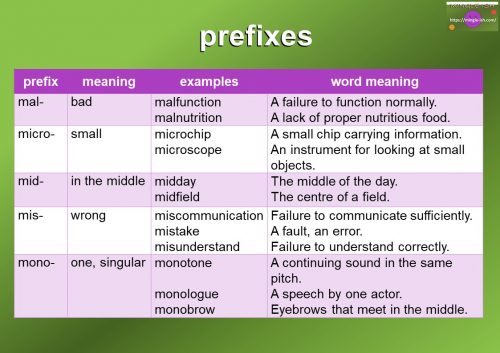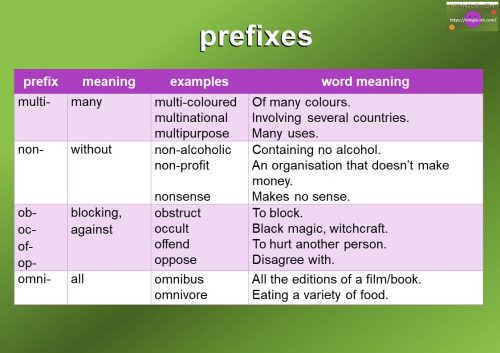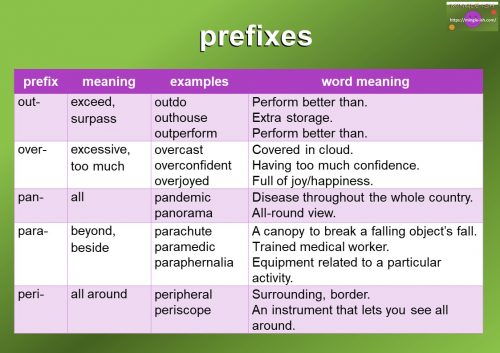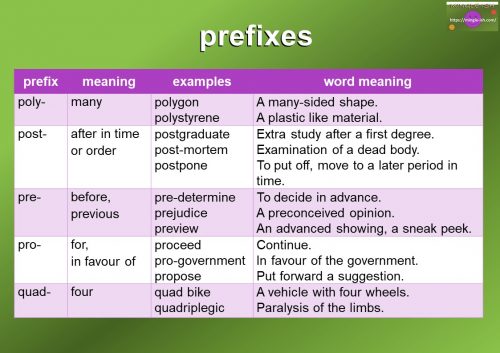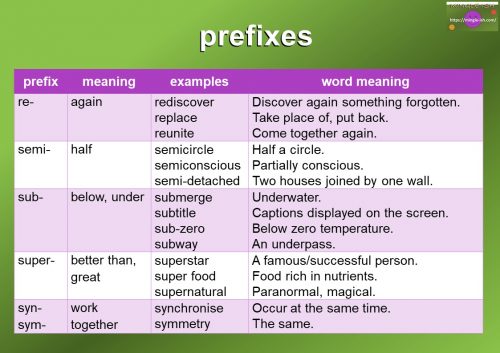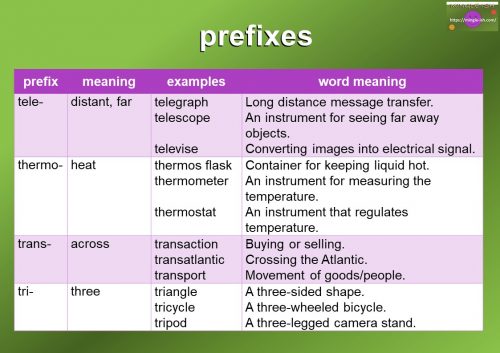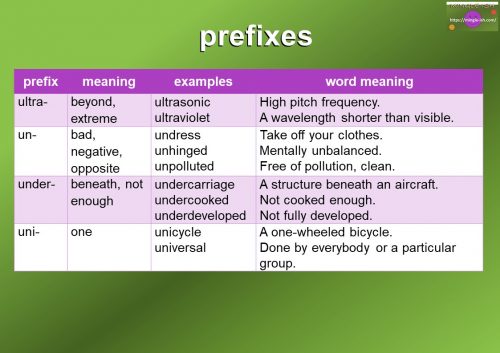A prefix is a very common occurrence in the English language, they are everywhere. I can guarantee you’ve come across many prefixes before although you might not have been aware of it!
Simply put, a prefix is a letter or group of letters that is placed before an existing word. The purpose is to change the meaning of the word and make a new word. This new word can have an opposite meaning to the original word and can also make the word negative amongst other things.
Are you with me? I’ll give you a quick example…
prefix example
We’ll take the word ‘assemble’ (which means to bring together, combine). If we add the prefix ‘dis’
dis+assemble = disassemble
The meaning of the word has now changed, and it means the opposite (take apart).
One of the meanings of the prefix ‘dis’ is the opposite.
As you can see, by learning the meaning of some common prefixes, it can greatly improve your understanding of new words. I’ve created a list of the most common and useful ones for you to get your head around.
Prefix list with meaning and examples
Now you know about prefixes, how about learning what a suffix is. I’ll give you a clue – it’s the opposite.
